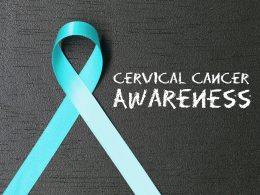In recent years, dietary supplements have become increasingly popular as individuals seek to enhance their health and wellness. These products, which include vitamins, minerals, herbs, amino acids, and enzymes, are intended to supplement the diet and provide nutrients that may be missing or insufficient in one’s daily intake. While dietary supplements can offer significant benefits, it is essential to understand their impact on health and wellness comprehensively.
Understanding Dietary Supplements
Dietary supplements come in various forms, including tablets, capsules, powders, and liquids. They are designed to support overall health, improve specific bodily functions, or address particular health concerns. Common examples include multivitamins, omega-3 fatty acids, probiotics, and herbal supplements like echinacea and ginkgo biloba.
Benefits of Dietary Supplements
- Nutrient Deficiency Prevention: One of the primary benefits of dietary supplements is their ability to prevent and address nutrient deficiencies. For instance, vitamin D supplements are often recommended for individuals who have limited sun exposure, while iron supplements can help those with anemia.
- Enhanced Immune Function: Certain supplements, such as vitamin C, zinc, and echinacea, are known to bolster the immune system. These supplements can help reduce the severity and duration of illnesses like the common cold.
- Improved Bone Health: Calcium and vitamin D are crucial for maintaining strong bones. Supplements containing these nutrients can be particularly beneficial for postmenopausal women and older adults at risk of osteoporosis.
- Cardiovascular Health: Omega-3 fatty acids, commonly found in fish oil supplements, have been shown to support heart health by reducing inflammation, lowering blood pressure, and decreasing triglyceride levels.
- Cognitive Function: Supplements like ginkgo biloba and omega-3 fatty acids are believed to enhance cognitive function and may help delay the onset of age-related cognitive decline.
- Digestive Health: Probiotics, which contain beneficial bacteria, can improve gut health by promoting a balanced microbiome. This can aid in digestion and alleviate issues like irritable bowel syndrome (IBS).

Potential Risks and Considerations
While dietary supplements offer numerous benefits, it is crucial to approach their use with caution. Not all supplements are created equal, and their effectiveness and safety can vary widely. Here are some important considerations:
- Regulation and Quality Control: Unlike prescription medications, dietary supplements are not strictly regulated by the Food and Drug Administration (FDA). This means that the quality, purity, and potency of supplements can vary significantly between brands. Consumers should look for supplements that have been independently tested by third-party organizations, such as the United States Pharmacopeia (USP) or NSF International.
- Interactions with Medications: Some supplements can interact with prescription medications, leading to adverse effects. For example, St. John’s Wort, a popular herbal supplement for depression, can interfere with the effectiveness of birth control pills and certain antidepressants. It is essential to consult with a healthcare provider before starting any new supplement, especially if you are taking other medications.
- Overconsumption and Toxicity: Taking excessive amounts of certain vitamins and minerals can lead to toxicity and adverse health effects. For instance, high doses of vitamin A can cause liver damage, while excessive iron intake can result in gastrointestinal distress and organ damage. It is essential to adhere to recommended dosages and avoid taking multiple supplements that contain the same nutrients.
- False Claims and Misinformation: The supplement industry is rife with products that make bold and often unsubstantiated claims. Consumers should be wary of supplements that promise miraculous results or quick fixes. It is important to rely on reputable sources of information and consult with healthcare professionals when evaluating the potential benefits of a supplement.
Integrating Supplements into a Healthy Lifestyle
Dietary supplements can play a valuable role in supporting health and wellness, but they should not be viewed as a substitute for a balanced diet and healthy lifestyle. Here are some tips for integrating supplements effectively:
- Prioritize a Nutrient-Rich Diet: Aim to obtain most of your nutrients from whole foods, such as fruits, vegetables, whole grains, lean proteins, and healthy fats. A varied and balanced diet is the foundation of good health.
- Identify Specific Needs: Determine if you have specific nutrient deficiencies or health concerns that may benefit from supplementation. This can be done through blood tests, dietary assessments, and consultations with healthcare providers.
- Choose High-Quality Supplements: Select supplements from reputable brands that undergo third-party testing for quality and purity. Look for certifications from organizations like USP, NSF, or ConsumerLab.
- Follow Recommended Dosages: Adhere to the recommended dosages provided on the supplement label or by your healthcare provider. Avoid the temptation to take higher doses, as this can lead to adverse effects.
- Monitor Your Health: Keep track of any changes in your health and well-being after starting a new supplement. If you experience any adverse effects or do not notice any improvement, consult with your healthcare provider.
- Stay Informed: Stay updated on the latest research and recommendations regarding dietary supplements. The field of nutrition is constantly evolving, and new information can help you make informed decisions.
Conclusion
Dietary supplements can have a positive impact on health and wellness when used appropriately. They can help prevent nutrient deficiencies, support immune function, improve bone and cardiovascular health, enhance cognitive function, and promote digestive health. However, it is essential to approach their use with caution, considering potential risks, interactions, and the importance of quality control.
Ultimately, dietary supplements should complement, not replace, a healthy diet and lifestyle. By prioritizing nutrient-rich foods, identifying specific needs, choosing high-quality supplements, and following recommended dosages, individuals can effectively integrate dietary supplements into their health and wellness routine. As always, consulting with healthcare professionals is crucial to ensure safe and effective use of dietary supplements.









